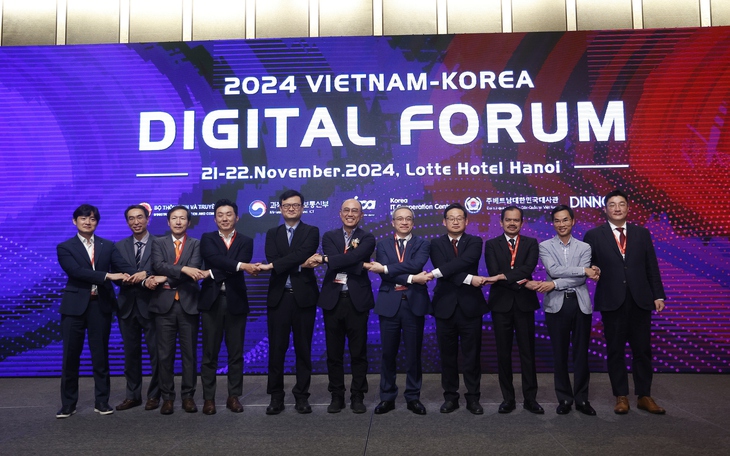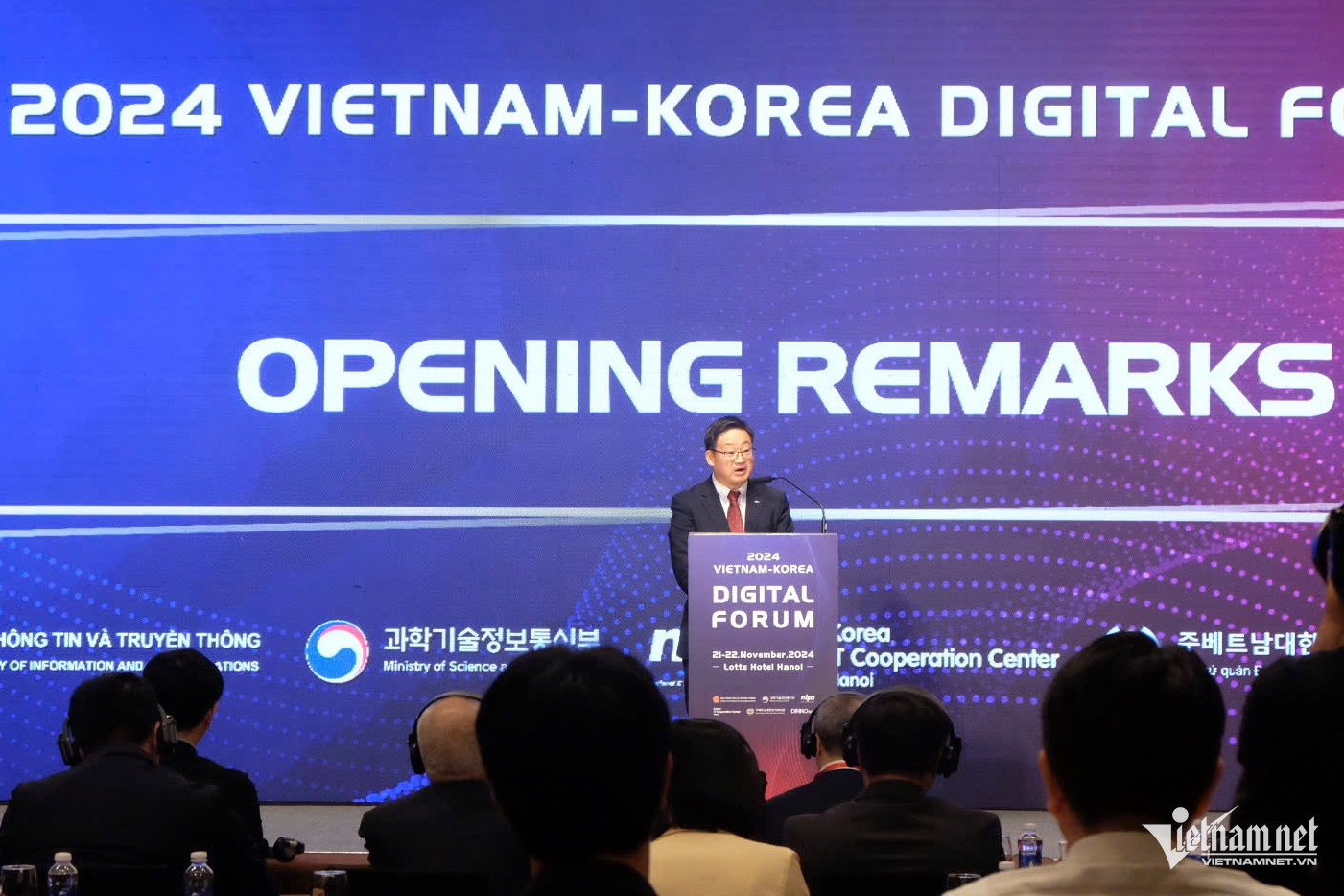
A recent Google Research forecast predicts that digital transformation could contribute $74 billion (approximately VND 1,733 trillion) to Vietnam's economy by 2030. This projection underscores Vietnam’s ambition to become a new technological hub in Asia, attracting enterprises and startups from across the globe.
At the forum, Do Tien Thinh, Deputy Director of the National Innovation Center (NIC) under the Ministry of Planning and Investment, highlighted Vietnam’s advantages in harnessing the benefits of artificial intelligence (AI).
“Vietnam’s strengths lie in its young, tech-savvy population with high levels of education. It is also the second-fastest-growing digital economy in Southeast Asia. Additionally, the Vietnamese government has implemented numerous policies to accelerate digital technology adoption,” Thinh said.
According to Thinh, there is significant room for AI application in Vietnam’s economic sectors, particularly in agriculture, food, retail, education, financial services, healthcare, and infrastructure.
For South Korean digital technology companies exploring the Vietnamese market, transportation and healthcare are especially promising fields for AI-driven startups.
Thinh also emphasized that Vietnam encourages data-sharing between public and private sectors to support business innovation. This openness, combined with a conducive policy environment and skilled workforce, makes Vietnam an attractive destination for AI startups.
“Vietnam ranks second among six Southeast Asian countries in AI startup potential. While Singapore leads with 44% of the region’s AI startups, Vietnam follows with 27%, far outpacing Indonesia and Thailand,” Thinh noted.

Hur Sung Wook, Chairman of South Korea's National IT Industry Promotion Agency (NIPA), expressed hope that the forum would usher in a new era of AI cooperation between the two countries. Photo: Trong Dat
Vietnam is actively fostering AI development through three main pillars:
To encourage investment, Vietnam offers incentives for high-tech and AI-related startups, including four years of corporate income tax exemption and reduced taxes for the following nine years.
Some provinces also implement controlled regulatory frameworks (sandboxing) for emerging technologies like AI in finance. Over the past two years, Vietnam has issued two resolutions and one special law allowing Hanoi, Ho Chi Minh City, and Da Nang to pilot sandbox models inspired by Singapore.
Vietnam is prioritizing policies to develop its AI ecosystem, with a focus on fostering human resources and AI platforms. The Ministry of Planning and Investment has collaborated with Google to establish the "AI Space" platform, providing startups with free access to cloud services and other digital tools. This initiative could save startups up to $350,000 over two years, offering significant financial backing to help them confidently invest and grow in Vietnam.
The 2024 Vietnam–Korea Digital Cooperation Forum is part of the International Digital Week organized by Vietnam’s Ministry of Information and Communications (MIC). The forum aims to allow Vietnam to learn from South Korea’s innovative approaches and successful digital strategies, narrowing the digital divide, empowering vulnerable groups, and fostering collaborative opportunities for businesses in both nations.
